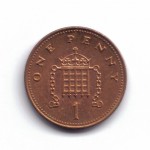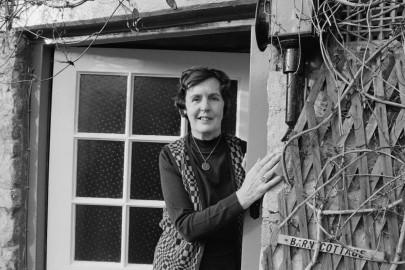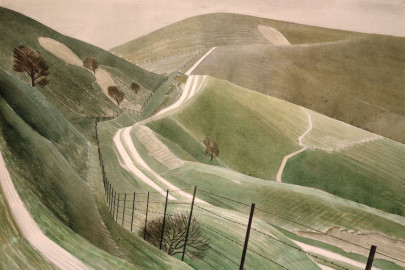Hard Times’ reputation is a bit of a mixed bag. FR Leavis claimed, absurdly, that it was the only Dickens novel worth consideration; George Bernard Shaw criticised the anti-Trade Union element and Thomas McCauley called it ‘sullen socialism’.
Certainly there are sound arguments both for and against Hard Times (available for 1p here). It is, for Dickens, remarkably short and to-the-point. The plot is coherent and tightly-structured; the anti-industrial, anti-utilitarian message is clear and hammered hard. This is either a good thing, if you like short and to-the-point; or a bad thing if the whole appeal of Dickens for you is to wallow for a week in a world of Victoriana and a cast of thousands.
It has the usual Dickensian problem of featuring some tedious really-ultra-mega goodies (Sissy, Stephen). The ploy of using certain characters as personifications of a virtue (empathy, moral rectitude) grates for the modern reader, or for me at any rate – though interestingly, personifications of vice don’t: really-ultra-mega baddies are always highly entertaining.
But there at least two good reasons to invest a few bedtimes in Hard Times. The first is that it includes a dog called Merrylegs, which is the best name for a dog I’ve ever heard.
The second, you might say more substantial reason, is the remarkable way that Dickens’ satire of certain types is as relevant today as ever. Gradgrind, the humourless utilitarian (whose eventual epiphany is a little unconvincing given the cartoonish extremes of his views in the early chapters) calls to mind the dafter sort of libertarian blogger, for whom every interaction between people can be reduced to a rational financial transaction on the human ‘market’.
Slackbridge, the Trade Union demagogue whose self-serving windbaggery could have been a model for Arthur Scargill, is a quite unforgettable cameo.
“But, oh my friends and brothers! Oh men and Englishmen, the down-trodden operatives of Coketown! What shall we say of that man — that working-man, that I should find it necessary so to libel the glorious name — who, being practically and well acquainted with the grievances and wrongs of you, the injured pith and marrow of this land, and having heard you, with a noble and majestic unanimity that will make Tyrants tremble, resolve for to subscribe to the funds of the United Aggregate Tribunal, and to abide by the injunctions issued by that body for your benefit, whatever they may be — what, I ask you, will you say of that working-man, since such I must acknowledge him to be, who, at such a time, deserts his post, and sells his flag; who, at such a time, turns a traitor and a craven and a recreant, who, at such a time, is not ashamed to make to you the dastardly and humiliating avowal that he will hold himself aloof, and will not be one of those associated in the gallant stand for Freedom and for Right?”
Above all, there is the ‘self-made’ factory-owner Bounderby, by far the best thing in the novel.
“I hadn’t a shoe to my foot. As to a stocking, I didn’t know such a thing by name. I passed the day in a ditch, and the night in a pigsty. That’s the way I spent my tenth birthday. Not that a ditch was new to me, for I was born in a ditch.” […]
Mrs Gradgrind hoped it was a dry ditch? […]
“No! As wet as a sop. A foot of water in it,” said Mr Bounderby.
“Enough to give a baby cold,” Mrs Gradgrind considered.
“Cold? I was born with inflammation of the lungs, and of everything else, I believe, that was capable of inflammation,’ returned Mr Bounderby. ‘For years, ma’am, I was one of the most miserable little wretches ever seen. I was so sickly, that I was always moaning and groaning. I was so ragged and dirty, that you wouldn’t have touched me with a pair of tongs. […]
“How I fought through it, I don’t know […] I was determined, I suppose. I have been a determined character in later life, and I suppose I was then. Here I am, Mrs Gradgrind, anyhow, and nobody to thank for my being here, but myself.”
Bounderby’s insufferable and endless boasting about dragging himself up from the gutter is comical – he is a broad-brush buffoon – but our enjoyment of him comes with a caveat, namely the misery undergone by his wife Louisa Gradgrind, a young lady forced by family circumstance to marry a man she wholly despises.
In the end Dickens permits her an escape route (Hard Times is a pro-divorce novel, with Stephen Blackpool also imprisoned in a worthless union) but the portrayal of a young person forced to ‘harden herself’ makes for troubling reading, and one can’t help but wonder how many real people went through similar misery in the days before the business of marriage became so much more, shall we say, flexible.












Hard Times is such an influential book that I suspect everything in it would feel quite familiar even if you’d never read it.
I think you miss the point that marriage is a contract relationship, and if the terms change then the negociants need simply change the (imputed) price. I would think all college graduates, and indeed all married men, would realize this; you are, clearly, a traitor to your class and a shame upon the soil that bore you. I have to say, when I was your age, I had to fight through to understand the world as it is. I didn’t have blog commenters come along and explain the whole thing to me in bite-sized chunks.
Yes indeed, thanks David!
The 1p Review has inspired me to re-read many books, most of which I have found tucked away on my shelves. I don’t, though, own a copy of Hard Times and that suggests it wasn’t on my compulsory reading list at school or college. I disliked most of the Dickens I was obliged to read: too many pages of tedious padding and so many of his characters unconvincing grotesques. However, following your recommendation, I’m prepared to risk 1p.
I had to ‘do’ Hard Times at school and thought it a good read but a bit waffley in plot. Incidentally, do you think Hard Times contains the highest incidence of Dickensian ‘surnames as sledgehammer-obvious character descriptors’ or is there another Dickens book that can claim that crown?
Imho Dickens is never less convincing than when he’s trying to be a ‘serious’ social commentator. Happily it’s never long before his natural gift for melodrama and genius for comedy come bursting through. Sadly Hard Times is now the one Dickens most of today’s schoolchildren have read, presumably because it’s short and has a ‘social message’.
Dickens has never been the same after seeing Callow’s monologues, awesome, fascinating, will find it hard having to read rather than listen to.
There’s a subject for this blog, read or be read to.
Monix – I quite like all that padding – Hard Times is a bit brief for me. I reckon Bleak House and Our Mutual Friend are streets ahead of the rest, but then I like Pickwick, which has more padding than Signourney Weaver’s shoulders in ‘Working Girl’.
Worm – there is the teacher in HT called M’Choakumchild, an utterly improbable name. Congreve’s ‘Way of the World’ is a good one for those sledgehammer-obvious names -Fainall, Sir Wilful etc…, it’s like Pilgrim’s Progress.
Nige – I didn’t know that about the schools, but given that it’s the Dickens of which The Socialist Party approves – http://www.socialistparty.org.uk/articles/8273 – I’m not suprised.
Malty – yes it would. I’ve never got into talking books, it doesn’t seem to stick in my brain unless I’m reading it.
There is a very nice pony called Merrylegs in Black Beauty by Anna Sewell (just thought you’d like to know)